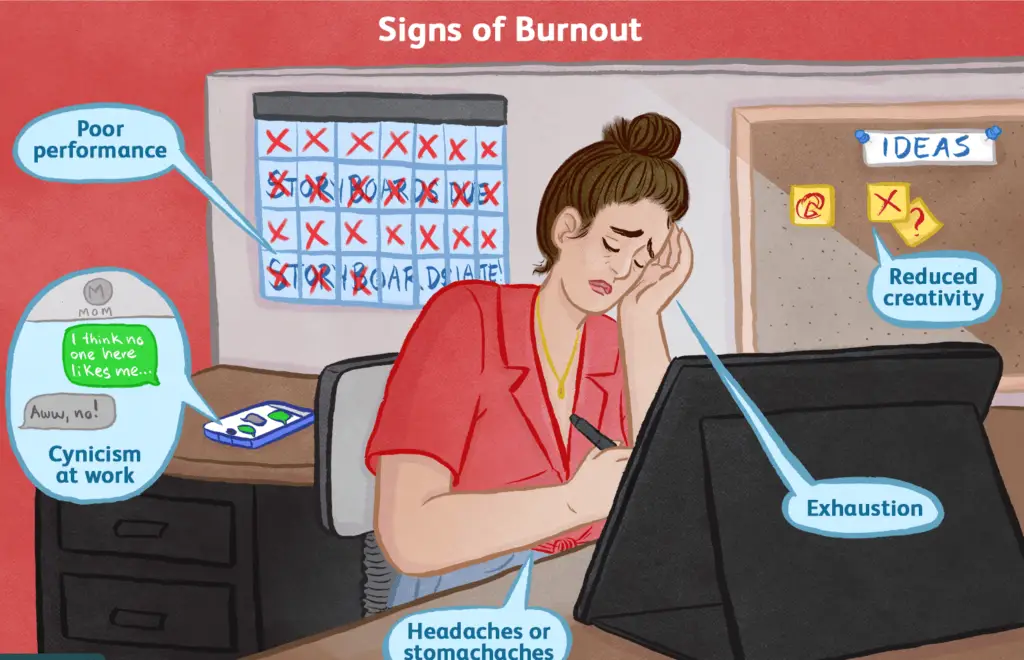Burnout Symptoms: Understanding and Navigating the Path to Recovery in Tampa
Burnout has emerged as a silent epidemic in today’s relentless pace of life, affecting countless individuals across various professions and walks of life. Characterized by profound physical, emotional, and mental exhaustion, burnout goes beyond the occasional feeling of being overwhelmed; it’s a state where everything seems futile, leading to a significant decline in one’s job performance, personal relationships, and overall quality of life.
This article delves into the intricate web of burnout symptoms, shedding light on how recognizing these signs early can lead to effective management and recovery. Specifically, we highlight the support systems available in Tampa through McNulty Counseling and Wellness, offering a beacon of hope for those grappling with this condition.
A Closer Look at Burnout Symptoms
Burnout is often insidious, creeping up through prolonged periods of stress and high demand. Identifying the symptoms early can be a crucial step in preventing the full-blown impact of burnout on one’s health and happiness. Early recognition allows for timely intervention, offering a chance to implement strategies for stress management and self-care that can halt the progression toward deeper emotional and physical exhaustion. It encourages a proactive approach to mental health, emphasizing the importance of setting boundaries, seeking support, and prioritizing well-being in a world that often demands too much. Ultimately, understanding burnout symptoms is the first defense against the overwhelming tide of chronic stress, paving the way for a more balanced, fulfilling life.

Physical and Emotional Exhaustion
Physical and emotional exhaustion is a hallmark of burnout, representing a state where the body and mind are so depleted that no rest seems sufficient. This condition manifests through several intertwined symptoms that significantly impact one’s quality of life and ability to function professionally and personally.
- Constant Fatigue, Regardless of Rest: Individuals experiencing burnout often report feeling tired all the time, even after a full night’s sleep or a weekend of rest. This type of fatigue is profound and pervasive, affecting every aspect of one’s life, and making even small tasks feel insurmountable.
- Insomnia and Disrupted Sleep Patterns: Paradoxically, despite the overwhelming fatigue, many suffering from burnout find themselves unable to fall asleep or stay asleep throughout the night. This results in a vicious cycle where the lack of restorative sleep exacerbates other symptoms of burnout, further depleting the individual’s energy reserves.
- Frequent Illnesses Due to Lowered Immunity: Chronic stress and exhaustion can weaken the immune system, making the body more susceptible to infections, colds, and other illnesses. This means that individuals experiencing burnout may find themselves getting sick more often than usual, which in turn can increase stress and fatigue, feeding back into the cycle of burnout.
- Headaches, Muscle Pain, and Physical Discomfort Without Clear Medical Causes: Burnout can manifest physically in various ways, including tension headaches, muscle aches, and other forms of discomfort that do not have an apparent medical cause. These symptoms are often the body’s response to prolonged stress and tension.
- Feelings of Dread About What Lies Ahead Each Day: One of the most debilitating aspects of burnout is the emotional toll it takes. Many individuals report a sense of dread or foreboding about facing another day, which can be particularly pronounced in the mornings. This can stem from a fear of not being able to cope with responsibilities or a general sense of hopelessness about the future.
Cynicism and Detachment
Cynicism and detachment are significant components of burnout, reflecting a profound disconnection from one’s work environment, personal life, and social activities. This detachment isn’t just a day of feeling blue; it’s a deep-rooted sense of disengagement and indifference that can drastically affect an individual’s overall happiness and performance.
- Loss of Enjoyment in Activities Once Loved: A clear sign of burnout is when individuals no longer find joy or satisfaction in activities that used to bring them happiness. This can range from hobbies and interests to spending time with loved ones. The things that once provided a respite from stress now feel like burdens or elicit no response at all.
- Pessimism About One’s Work and Personal Life: Burnout can skew perception, leading to a negative outlook on virtually all aspects of life. This pessimism isn’t limited to professional responsibilities; it spills over into personal relationships and self-perception, often leading to a sense of hopelessness or failure.
- Isolation and Withdrawal from Social Interactions: Individuals experiencing burnout may withdraw from friends, family, and colleagues, isolating themselves in an attempt to cope with their overwhelming feelings. This isolation can be both a symptom and a contributor to the cycle of burnout, as it deprives the person of potential support systems and the positive effects of social interaction.
- Detachment from Work and Personal Responsibilities: One of the more insidious aspects of burnout is the sense of detachment from responsibilities. Tasks at work and home become increasingly difficult to engage with, leading to procrastination, neglect, or a minimum-effort approach. This isn’t laziness but a sign of a deeper issue where the individual feels disconnected from the outcomes of their efforts.
Feelings of Ineffectiveness and Lack of Accomplishment
Feelings of ineffectiveness and lack of accomplishment are core components of burnout, reflecting a profound disconnection between one’s efforts and the outcomes. These feelings can erode self-esteem, diminish professional satisfaction, and significantly impact mental health. Understanding these symptoms is crucial for recognizing burnout and seeking appropriate intervention.
- Feelings of Inadequacy and Failure: Individuals experiencing burnout often report a deep-seated sense of not being good enough, regardless of their achievements or the effort they put into their work. This can lead to a diminished sense of personal and professional worth, contributing to a downward spiral of self-doubt and negative self-talk.
- Decreased Productivity and Poor Performance: Despite spending long hours at work or obsessing over tasks, those suffering from burnout may notice a significant drop in their productivity and the quality of their output. This discrepancy between effort and result can exacerbate feelings of failure and frustration, further entrenching the sense of ineffectiveness.
- Difficulty Concentrating and a Sense of Inefficacy: A hallmark of burnout is the struggle to maintain focus and the pervasive feeling that one’s efforts are futile. Tasks that once seemed straightforward may now appear insurmountable, and decision-making can become increasingly difficult, leading to paralysis and avoidance.
- Lack of Satisfaction from Achievements: Even when individuals experiencing burnout accomplish significant milestones or receive accolades for their work, they may find these successes hollow and unrewarding. This lack of fulfillment is particularly disheartening, as it can remove one of the key motivators for continued effort and engagement in both personal and professional spheres.
Why Choose McNulty Counseling and Wellness?
Opting for support in managing burnout symptoms and stress in the Tampa area means entrusting your mental health to McNulty Counseling and Wellness, a team with a deep local understanding and a commitment to therapies that consider the unique contexts of its community. This choice with McNulty ensures access to care from professionals who specialize in the intricacies of burnout and stress management. They provide not just generic advice but a therapeutic process aimed at uncovering and addressing the root causes of distress through evidence-based practices.
The availability of virtual counseling options through McNulty Counseling and Wellness reflects an understanding of the diverse needs of clients, making high-quality care accessible to those who prefer or require remote support. This adaptability, coupled with their compassionate, client-centered approach, ensures that each individual’s journey is respected and prioritized. Such a supportive and empathetic environment fosters a space where healing and personal growth are not just possible but encouraged, making the path to recovery a tailored experience that values and understands the individual’s unique challenges and goals.
Conclusion
In a world where the pace of life often feels relentless, recognizing and addressing the symptoms of burnout is more crucial than ever. The journey from recognizing the depth of one’s exhaustion to taking the first steps toward recovery can be challenging, yet it’s a path filled with potential for personal growth and renewed vigor. McNulty Counseling and Wellness stands ready to guide you through this process, offering a blend of professional expertise, compassionate support, and a deep understanding of the unique challenges faced by those in the Tampa area.
By embracing a holistic approach to recovery that addresses both the Burnout symptoms and underlying causes of burnout, McNulty Counseling and Wellness can help you rediscover your passion, enhance your productivity, and ultimately, reclaim the joy and fulfillment that burnout has overshadowed. Remember, the first step towards healing is reaching out—let us be your partner on the journey back to a balanced and enriching life.
Contact Us
Don’t let burnout dictate the course of your life. Reach out to McNulty Counseling and Wellness for professional support and guidance tailored to your unique situation. Visit our website at mcnultycounseling.com/ to learn more about our services or to schedule an appointment. You can also call or text us at 727-344-9867 or email Admin@McNultyCW.com. Start your journey to recovery today, and reclaim the joy and energy that burnout has dimmed.







